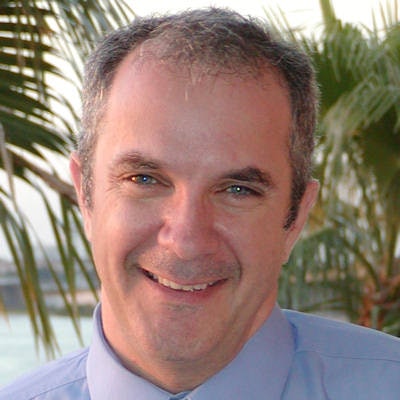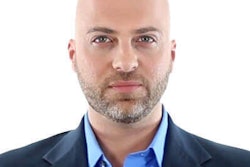
A full schedule is vital to the health of your practice; however, most practice owners vastly underestimate how much you have to work to keep the schedule full.
 Kevin Tighe is a managing partner at Cambridge Dental Consultants.
Kevin Tighe is a managing partner at Cambridge Dental Consultants.A key to achieving and maintaining a full schedule is a robust reactivation program. Although automatic recall and reactivation systems are now part of the fabric of many practices, you don't want to get too automatic. A solo practice should still devote two to four hours per week directly calling patients who never scheduled, are incomplete on their treatment plans, or are overdue for recare.
Needless to say, some practices have seasonal slows, but I find the overriding factor is a front desk aggressively working on the schedule by making lots of calls and also ensuring that patients leave the office with their next appointment already scheduled.
Reactivation project
Your office needs to take two basic actions to reactivate a patient using this program:
- Send the patient a letter.
- Follow up the letter with a phone call.
Assign this program to an office staff member to ensure accountability. This person will be called the reactivation secretary. Have this team members do the following:
- Run a report to get a list of patients who have not been in for a year or more. Omit those patients who have moved out of the area, passed away, or are no longer prospective patients for reactivation.
- Prepare a letter using your office stationery modeled after this sample letter (PDF). Use high-quality paper to present a professional look.
- Address envelopes to each patient from step No. 1 above and send out the letters.
Reactivation calls
You should get some response from the letter, but just as important, if not more so, is the follow-up phone call. The letter sets up the call. The person making calls must be an excellent communicator and must enjoy making such calls. Do not allow a poor communicator to make calls.
Have your reactivation secretary make a copy of the reactivation script, and practice that script until it can be done naturally and comfortably. Do this by having a staff member or the dentist play the role of the patient being reactivated. Be thorough on this step. It is a major factor in reactivation success.
While that activity on the script is taking place, the team member should also go through your inactive patient files and break them into the following categories:
- Category A: Have not been in for treatment from 12 to 18 months.
- Category B: Have not been in for treatment from 18 to 24 months.
- Category C: Have not been in for treatment for more than 24 months.
- Category D: Have been seen within the last year but have failed to show for treatment.
Starting with the group of patients who have not been in for 12 to 18 months, use this reactivation script (PDF) to call and schedule them for a cleaning. Reactivation calls are best done in the late afternoon and early evening hours as this is when people are most usually able to be contacted, unless the contact notes give a preferred time to call. Calling between 4:00 p.m. to 8:00 p.m. is recommended.
Keeping track of the following statistics is important so that you can monitor and improve the success of this program:
- Number of calls made
- Number of appointments made
- Number of appointments kept
Your team member should turn in these statistics to you every day. Be sure to ask if they are experiencing any difficulty so that optimum results can be obtained.
4 calling tips
You should remind the team member making these calls of these four points:
- The team member should quickly review the patient file before calling for patient and family information.
- During the call, the team member should use the information obtained about the person in your conversations to show that you made an effort to know about the patient and his or her family. Show that you care for your patient.
- The team member should not be timid or careful. How effective the caller is determines whether the patient gets needed dental care. Some people are not anxious to come in for services because of fear. Do not let their fear stop you in being effective at your job. When patients come in for care, they win and so does the office. You must be willing to help the patient overcome barriers.
- The team member should make calls based on knowledge of the patient without becoming obnoxious or seeming desperate. The number of calls to one patient is based on what is known about that person -- for example, if the patient is ill or out of town.
Patients who do not schedule
If the reactivation secretary cannot get the patient to schedule, the file is passed to the dentist and the dentist calls the patient. Often just the fact that the dentist is calling will get some patients to commit.
The hat the dentist is wearing at this point is quality control. You must discover why the patient is not scheduling. You can start by checking the following areas:
- If the patient does not see that the care is needed, then educate the patient as needed.
- If the patient had a negative experience in the office, find out what it was.
Once you find the correct reason, the patient will likely schedule. The key is finding the real explanation for the patient's resistance. To accomplish this, you must be willing to confront whatever comes up without reacting defensively.
Have fun
I have never seen seriousness be a winning ingredient in making an office successful, so you will have far better results if the person making the calls actually enjoys it.
Make your New Year's resolution a simple one: Reactivate lots of patients to fill your schedule.
Kevin Tighe is a managing partner at Cambridge Dental Consultants. He can be reached at [email protected].
Disclaimer: Your geographical area may have specific rules about patient communication, what is considered advertising, and what is allowed in terms of stating fees and prices. DrBicuspid.com encourages you to be aware of any and all rules that apply.
The comments and observations expressed herein do not necessarily reflect the opinions of DrBicuspid.com, nor should they be construed as an endorsement or admonishment of any particular idea, vendor, or organization.



















